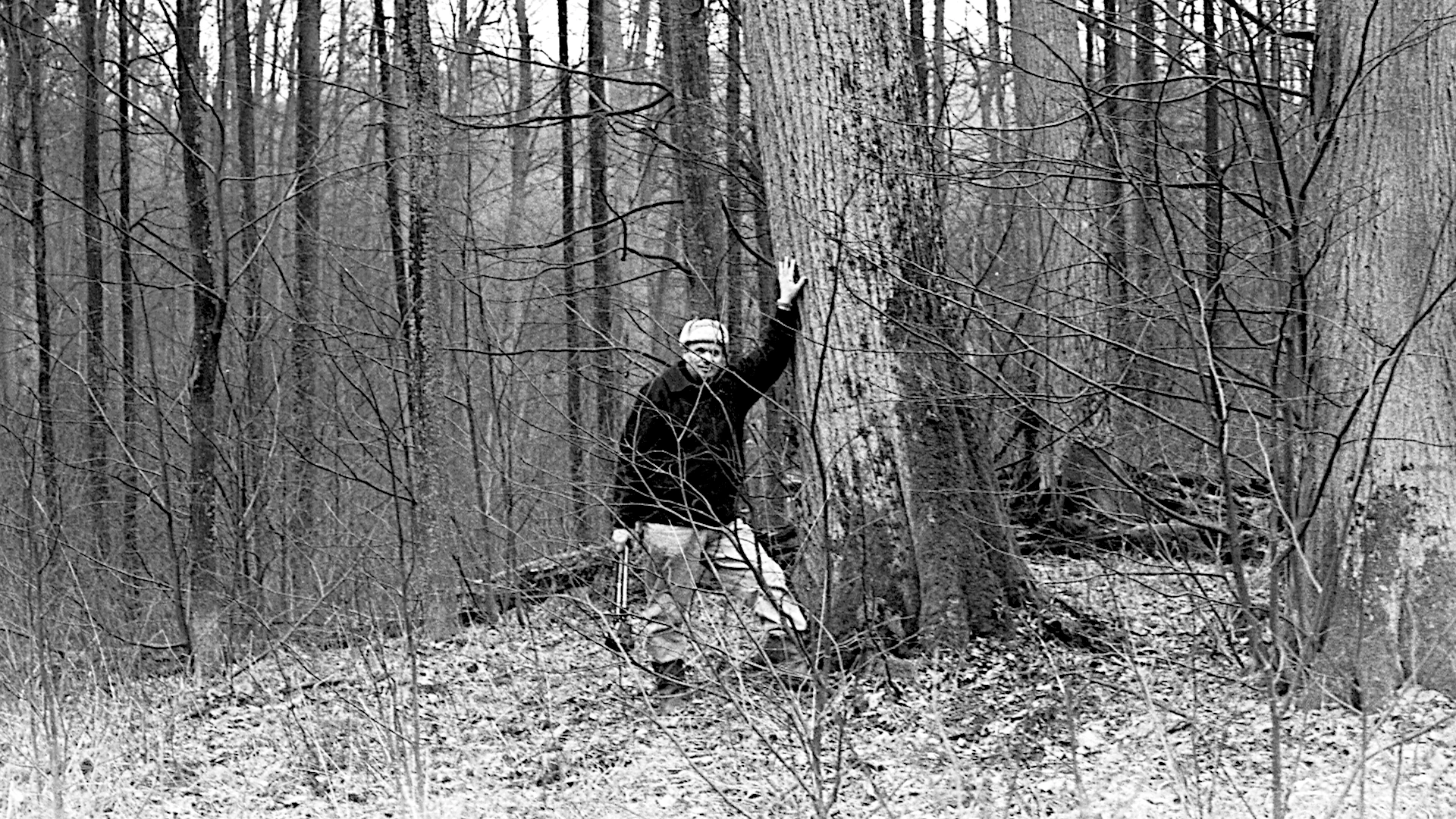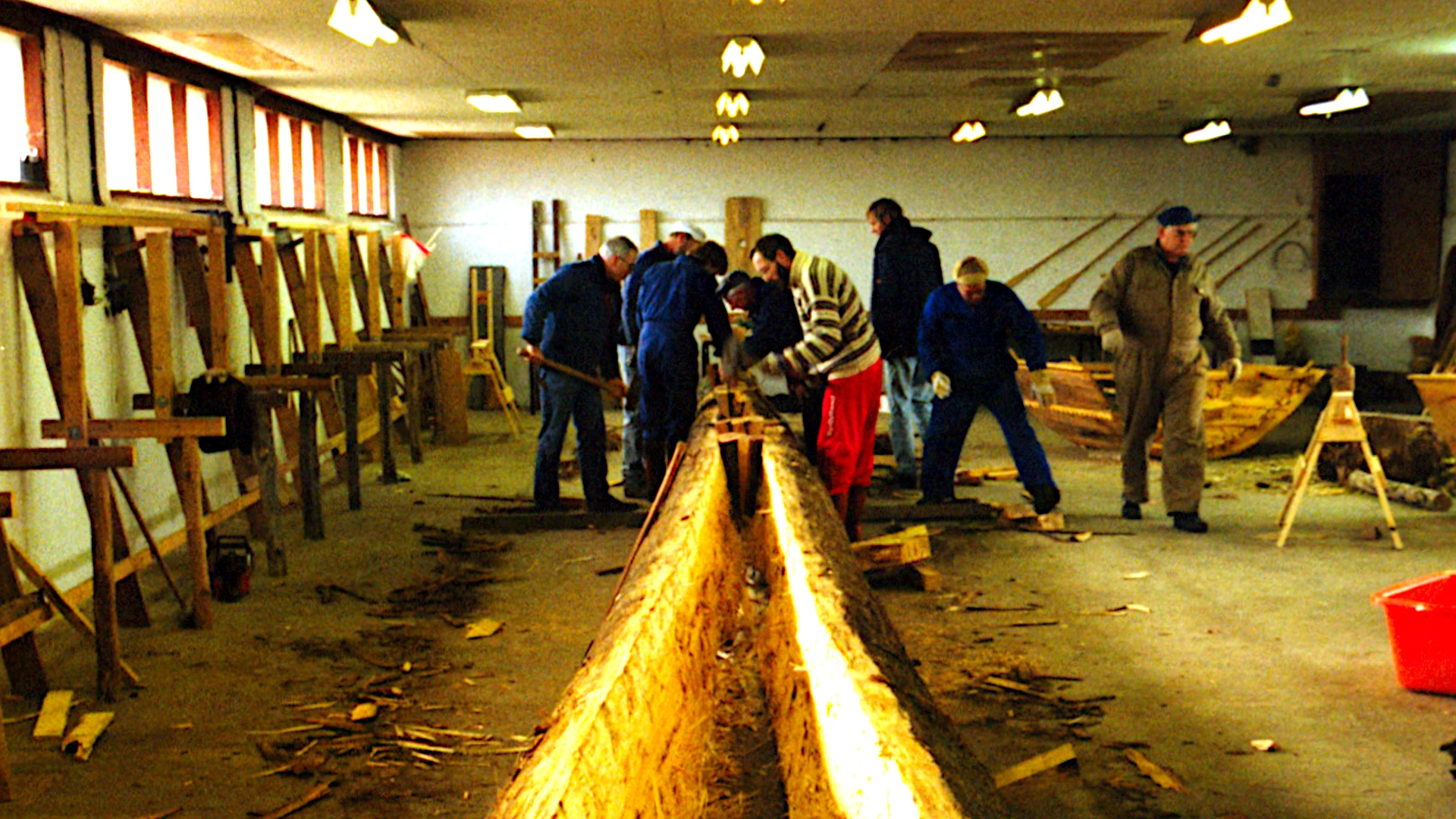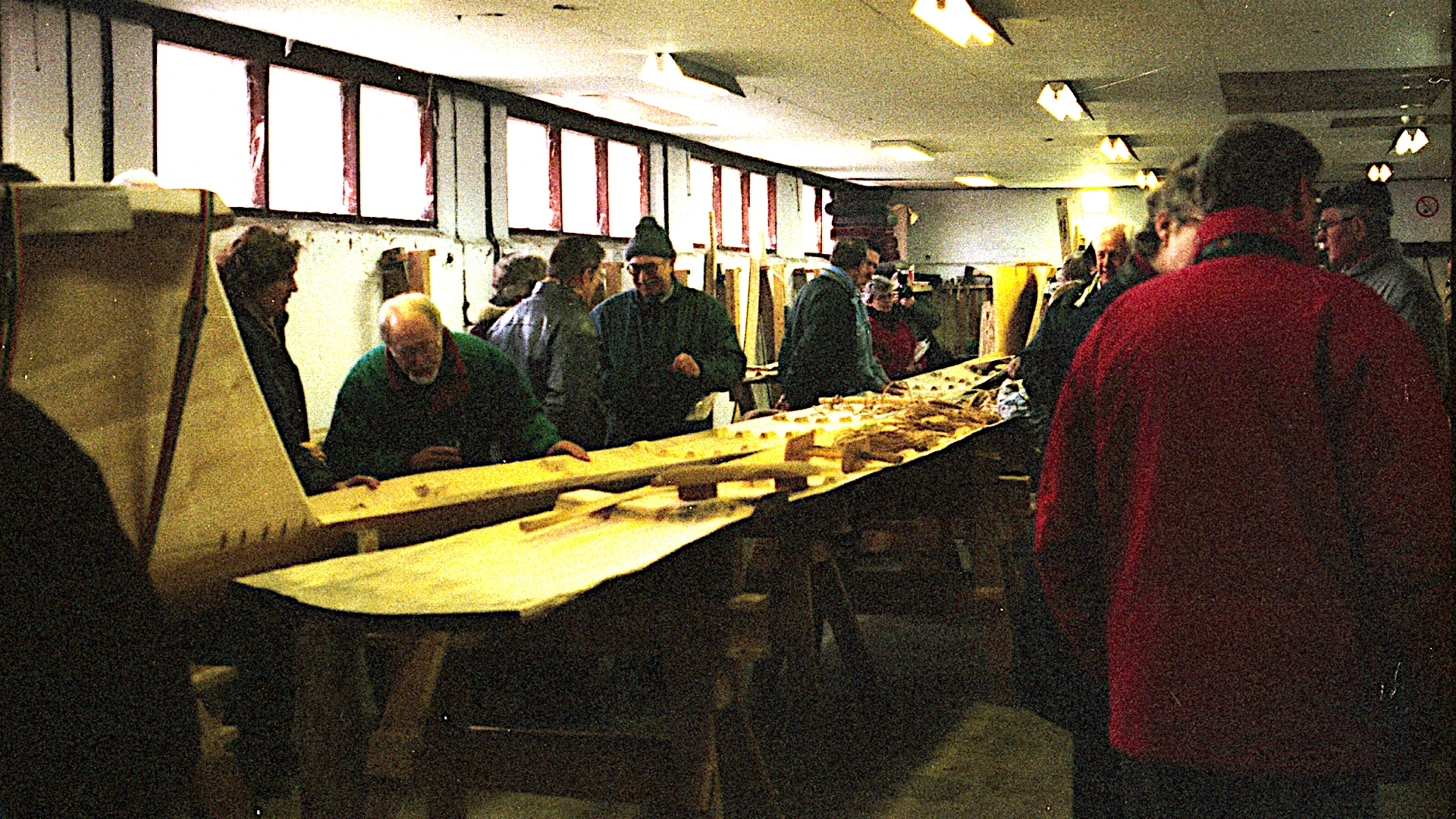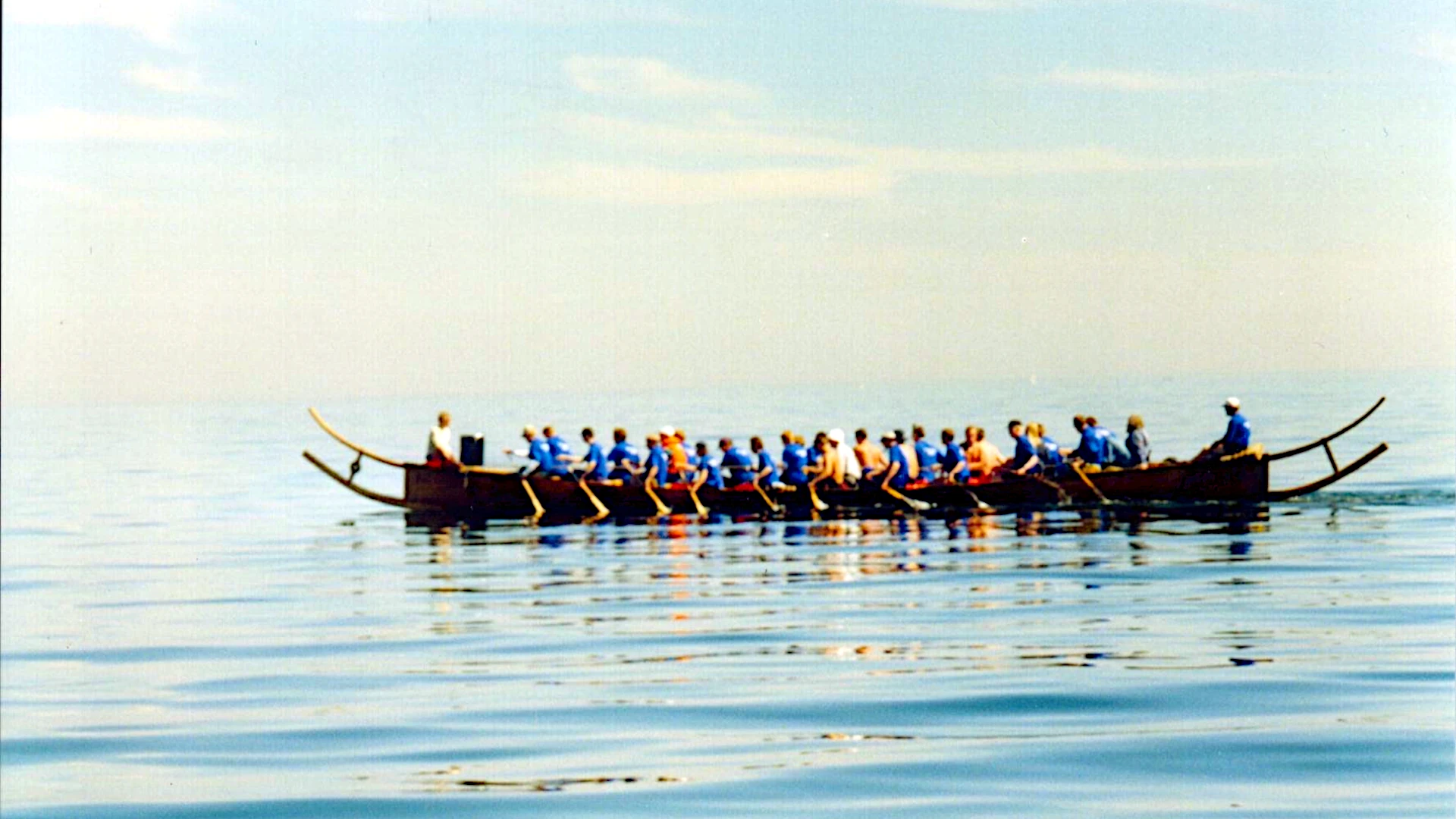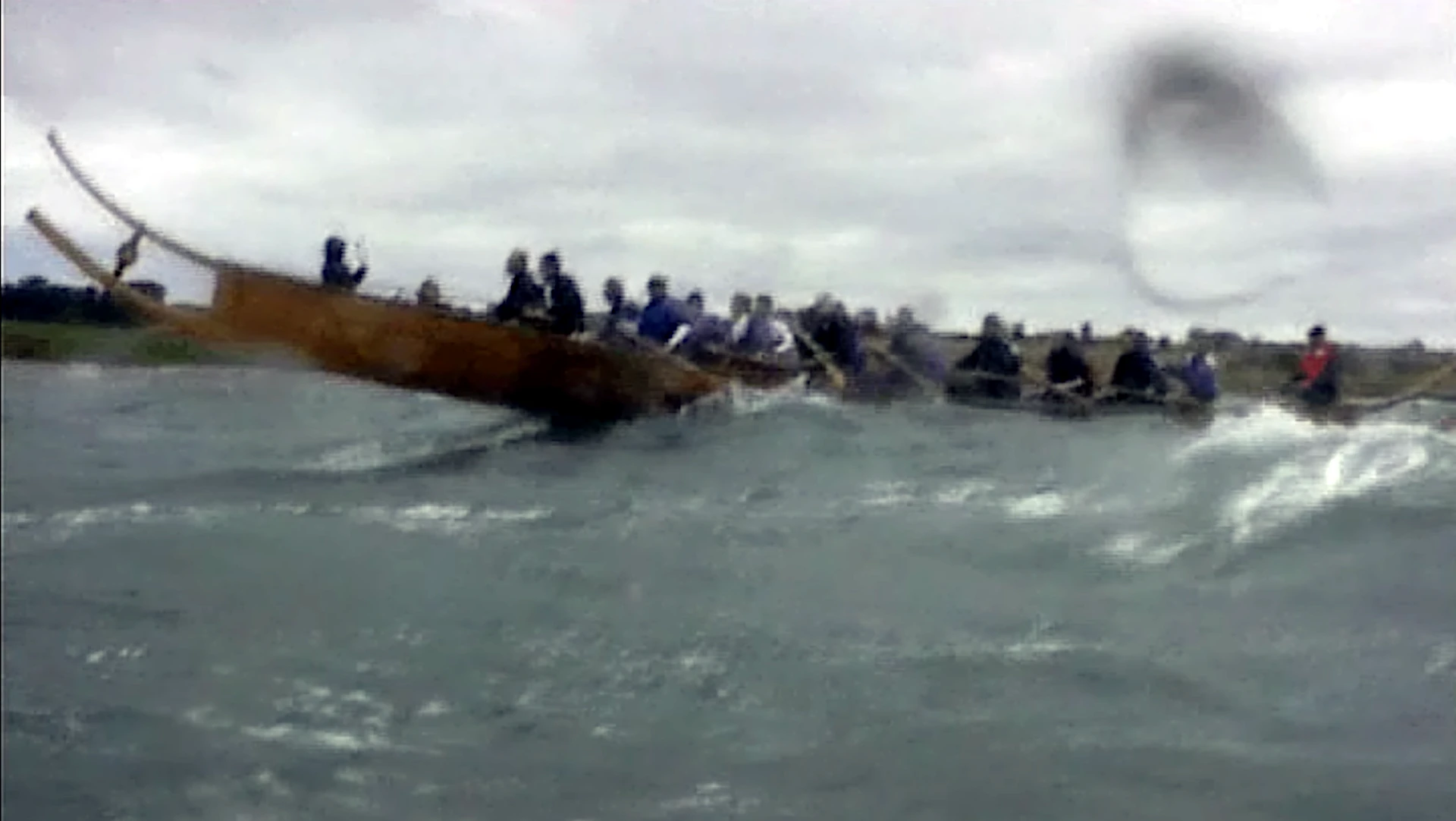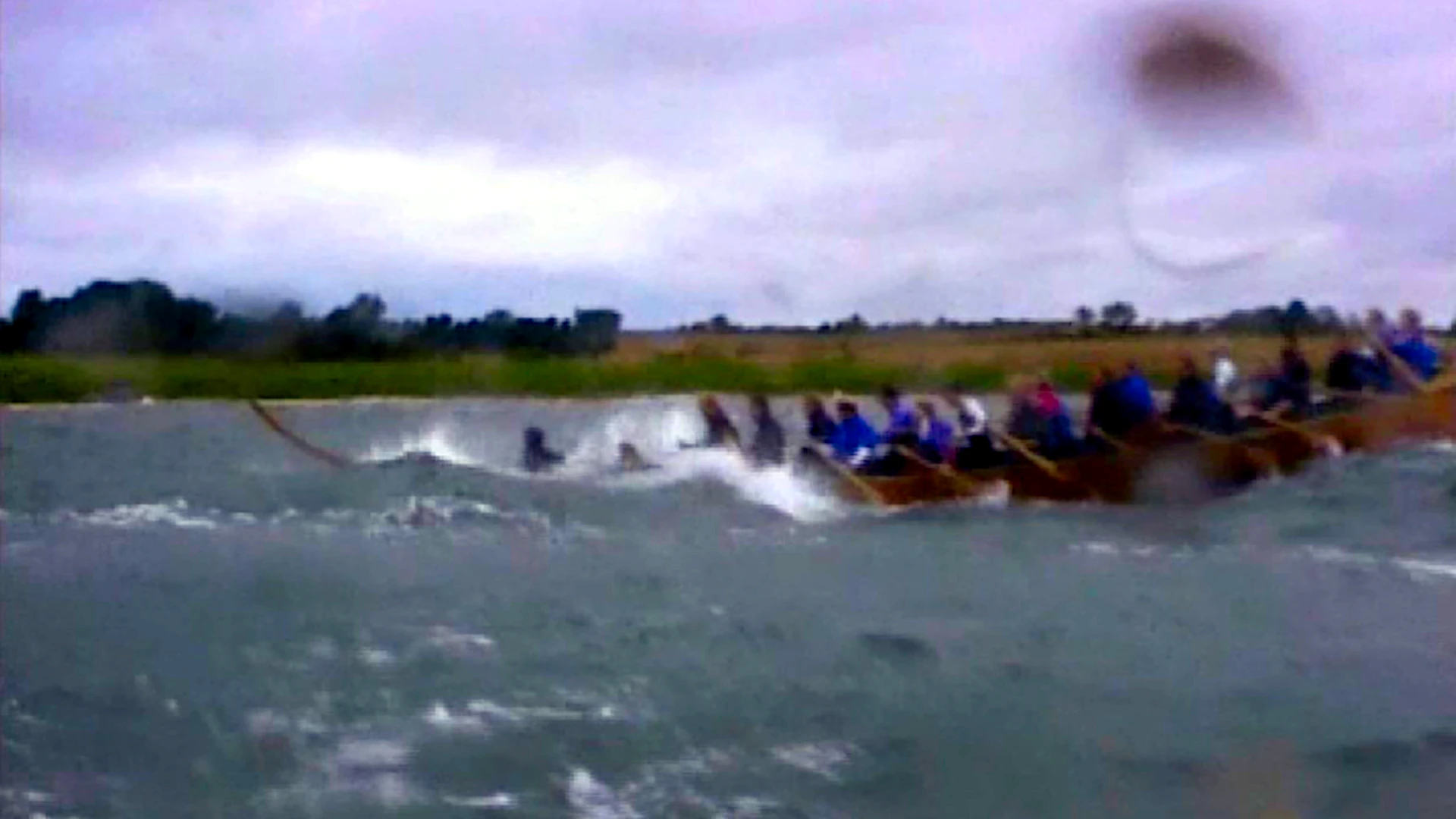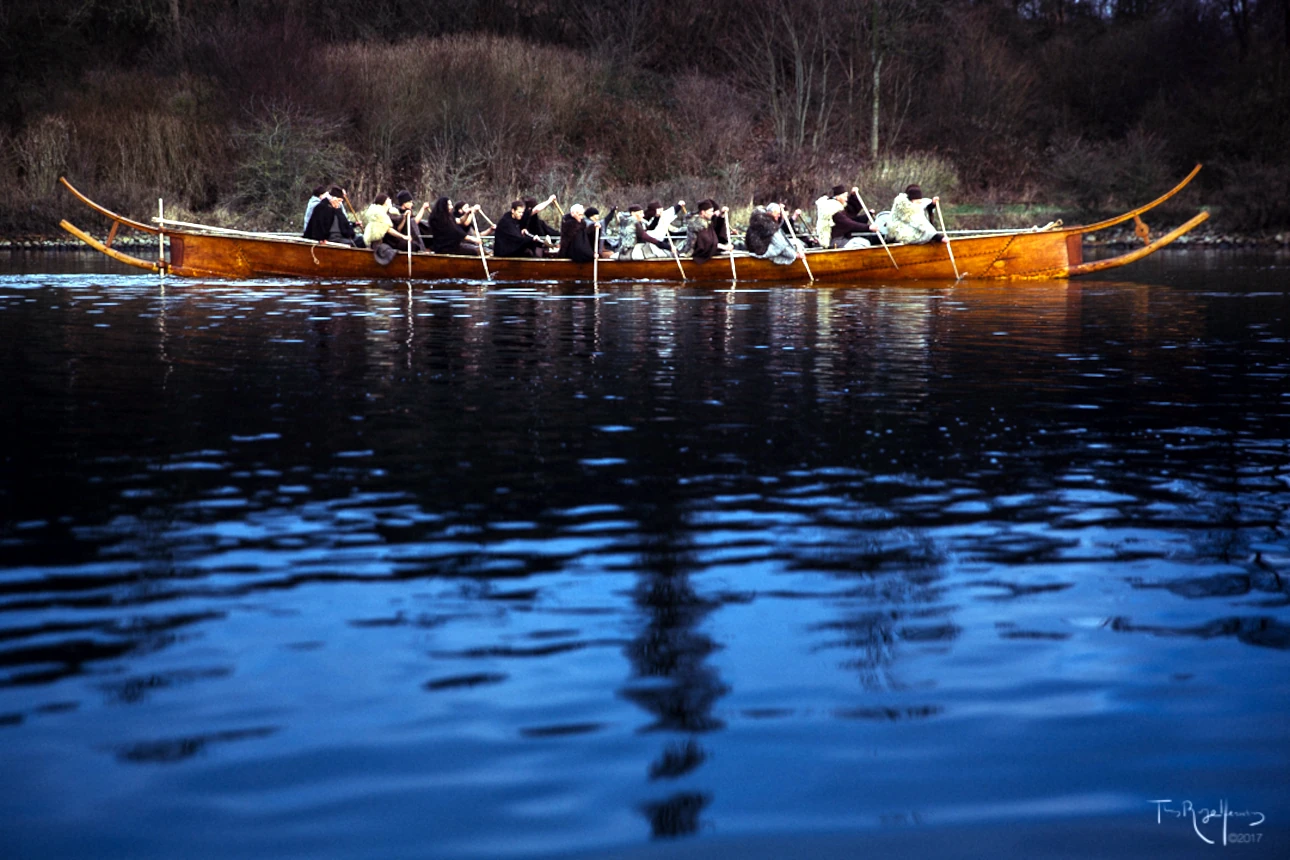Hjortspringbådens Laug
IIn 1921-22, in an archaeological excavation of Hjortspring Mose on Als, remains of a boat were found, as well as a quantity of weapons and shields.
The boat found turned out to be a "rock carving boat", i.e. it has the appearance of the thousands of Bronze Age petroglyphs found on the rocks in Sweden, Norway and Bornholm. It is the only boat of its type ever found. However, it is from the Early Iron Age (year -500 - 1), just after the Bronze Age.
The boat found turned out to be a "rock carving boat", i.e. it has the appearance of the thousands of Bronze Age petroglyphs found on the rocks in Sweden, Norway and Bornholm. It is the only boat of its type ever found. However, it is from the Early Iron Age (year -500 - 1), just after the Bronze Age.
We have produced a reconstruction of the Hjortspring Boat!2
This homepage
This website describes the find, the reconstruction, the activities and the documentation, as well as something about ourselves.
You can also visit us
At our little museum, Dyvigvej 11, Holm, 64430 Nordborg.
Here you can see and hear about the boat and experience what we do on Tuesday afternoons for 11 months of the year.
More below.
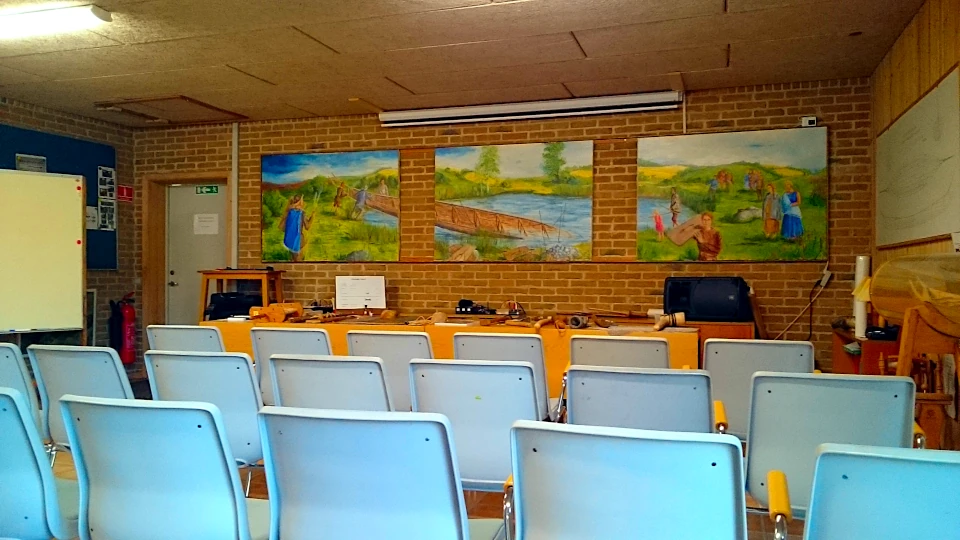
Lecture
The visitors will have the opportunity to watch a video about the Guild, which shows the work process and our work in carrying out a reconstruction of the boat from the Hjortspring find, as well as manufacturing some of the other parts, weapons, shields and personal equipment, from the find. The video lasts from approx. 20 min - ??, depending on how many questions are asked.
In the lecture hall you can also see copies of weapons, shields, personal parts and miscellaneous tools and examples of clothing from around year 1.
Then there is a tour of the boathouse and the forge.
In the lecture hall you can also see copies of weapons, shields, personal parts and miscellaneous tools and examples of clothing from around year 1.
Then there is a tour of the boathouse and the forge.
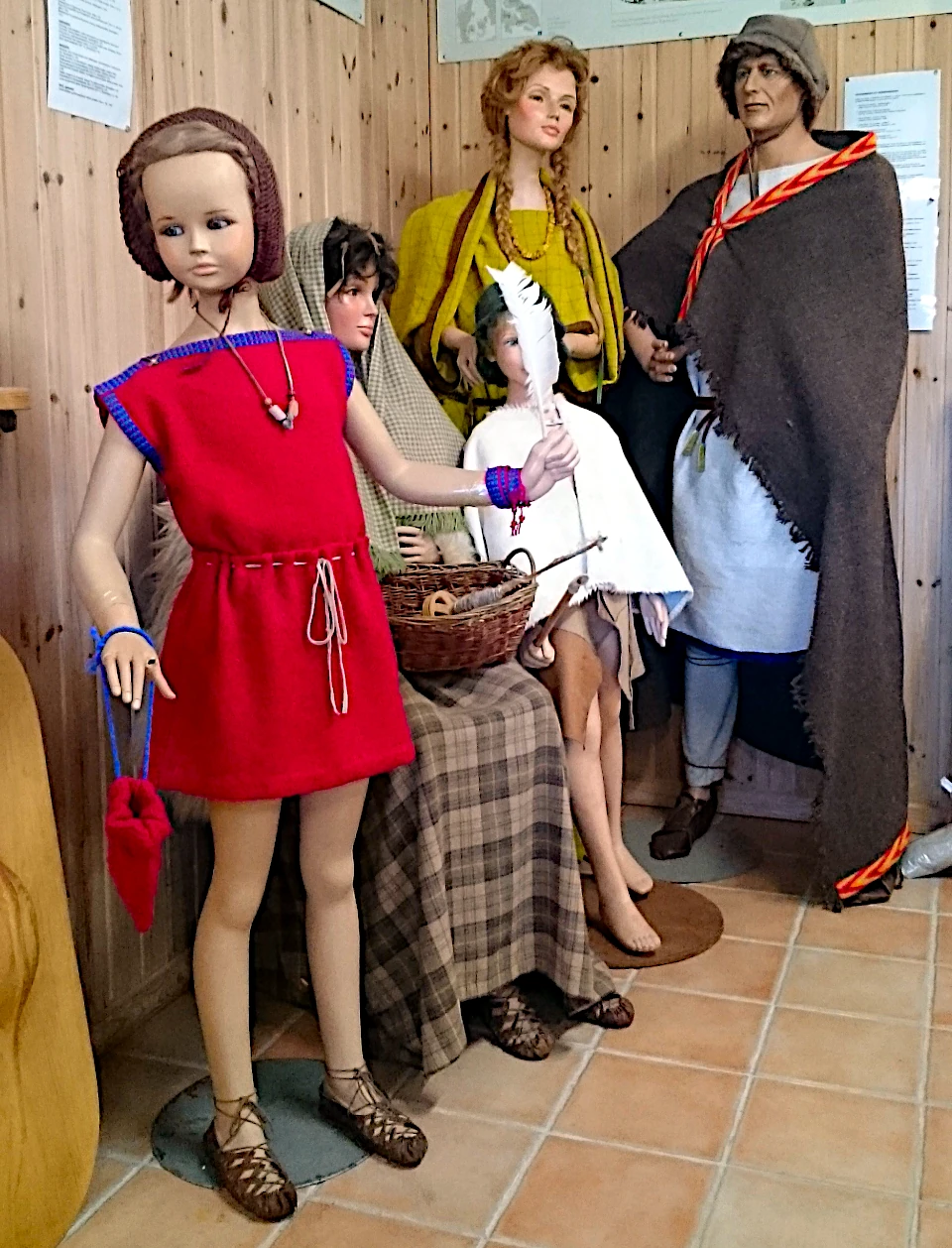
Exhibition of textiles
In the Hjortspringbådens Laug, we also work with clothing from the Iron Age. From the mosses, we know many techniques that were used at the time and work with: Spinning, plant dyeing, weaving fabric for the garments on upstand looms. Jump weaving of hats and bags, needle binding of hats, socks and mittens, as well as the production of ribbons in many different ways, e.g. piece weaving, ribbon weaving, finger plait, plait wheel, square plait, twelve plait, nørkling. Manufacture of leather shoes and purses, glass and amber jewellery, willow, grass and bast baskets and linden bast ropes. Many examples of these techniques can be seen in the lecture hall.
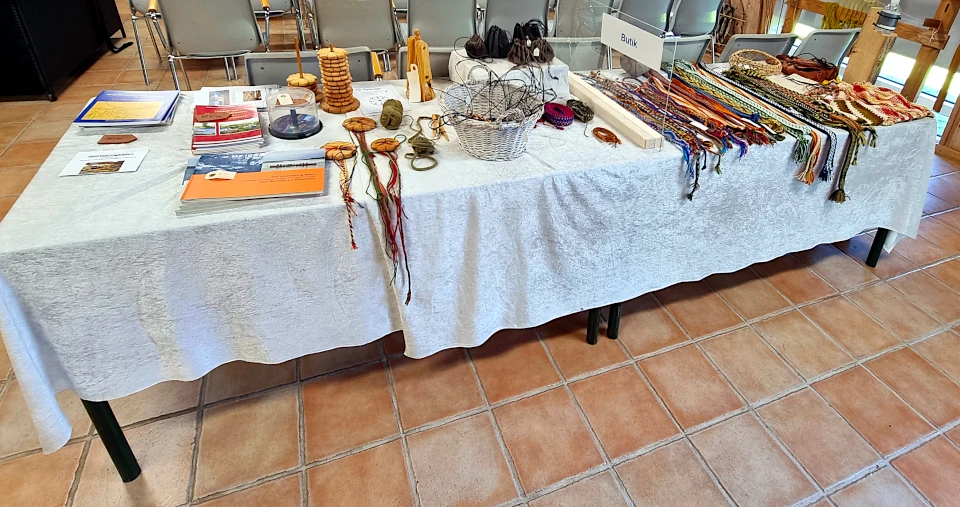
Shop
We have a small shop where we sell T-shirts, caps, etc. needlework and, not least, our own books about our work.
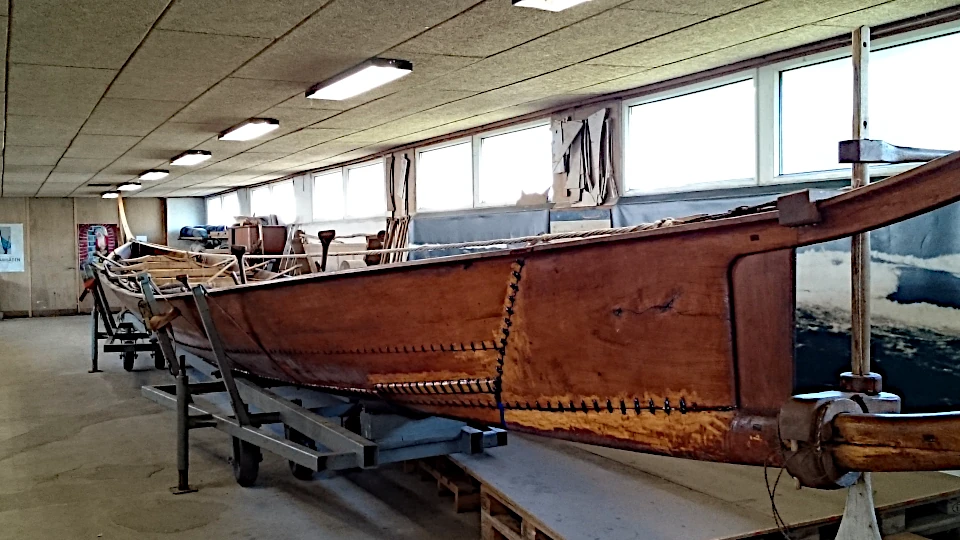
Tilia's storage and display
Here the boat can be seen, and discussed, in all details, e.g. where our boat departs from Fr. Johannesen's drawings and from the National Museum's exhibition of the boat. You can also try sitting on a toft in the boat with a paddle in your hands and imagine life at sea. This also applies to children.
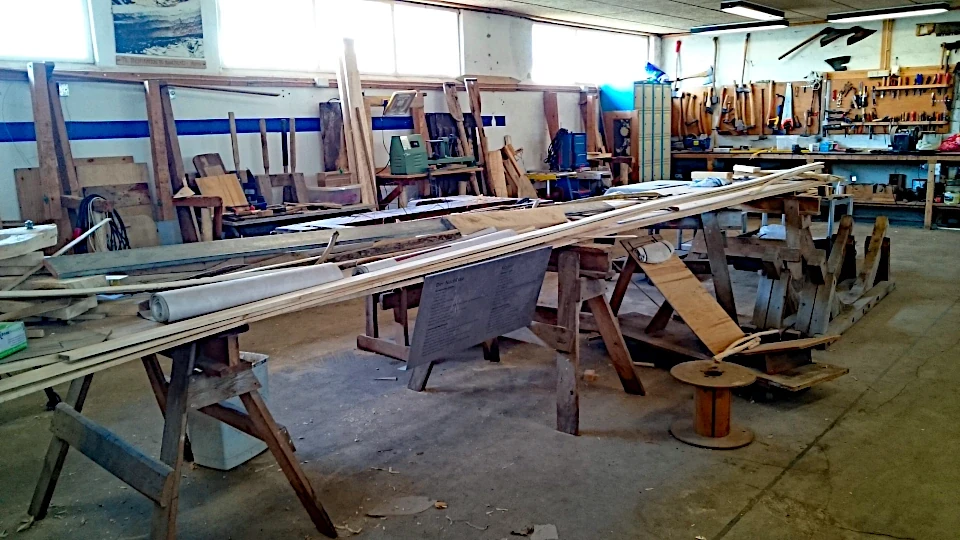
The boatyard
Here we work with the production of smaller parts from the Hjortspring find.
Maintenance of the boat and other exhibits.
Maintenance of the boat and other exhibits.
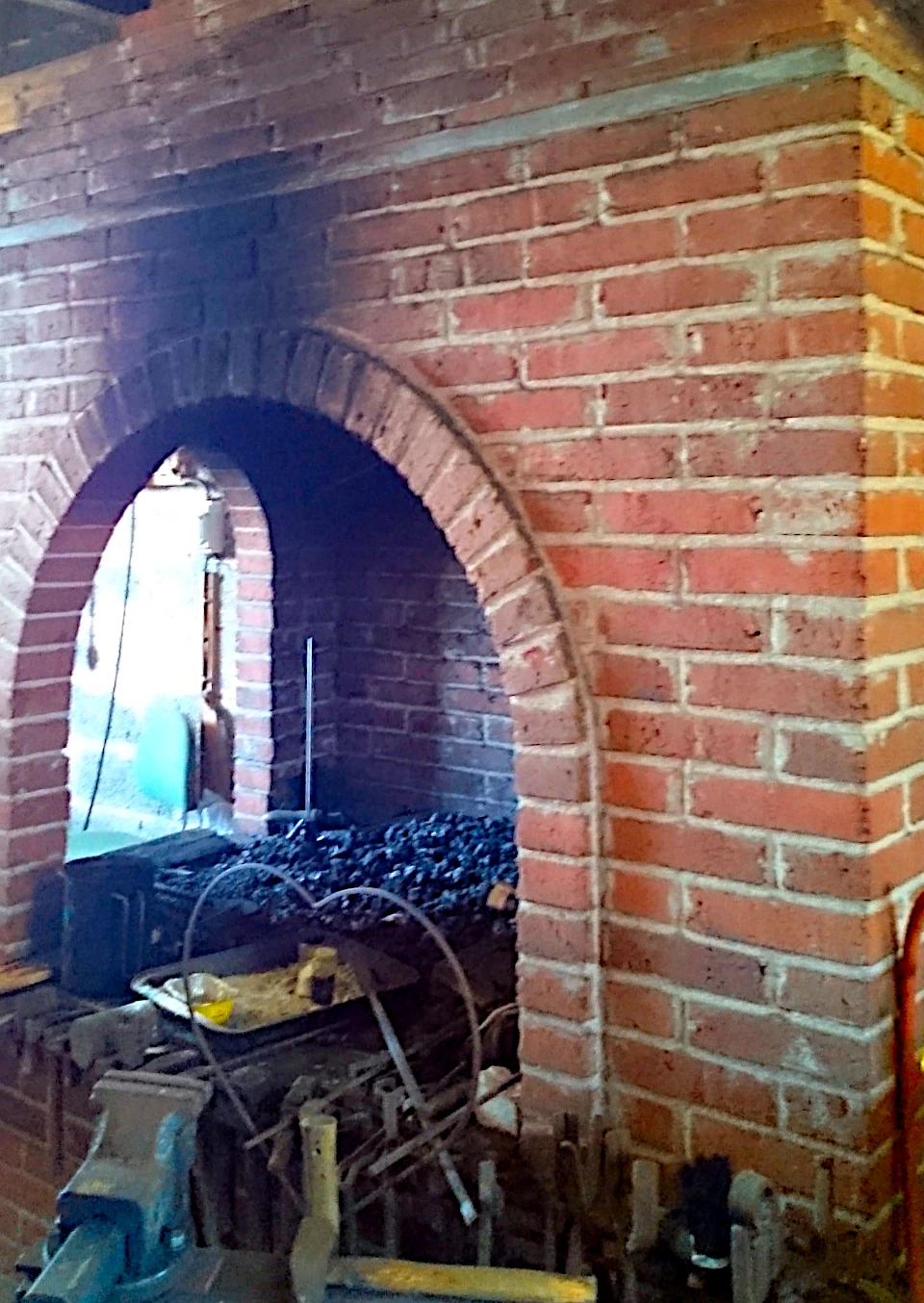
The blacksmith shop
In the forge there is a double ace with tools, where we have made copies of weapons from the Hjortspring find.
We have some members who work on making pattern-forged knives (modern), so there is also modern equipment for this purpose.
We have some members who work on making pattern-forged knives (modern), so there is also modern equipment for this purpose.
Language
The text in this article has been translated from Danish to English using the free DeepL translation programme.
If you have any comments on this article, you can send an e-mail to the
Please do not overwrite the existing text in the subject field, I need
information to see which article you are writing from. Feel free to add
your topic afterwards.





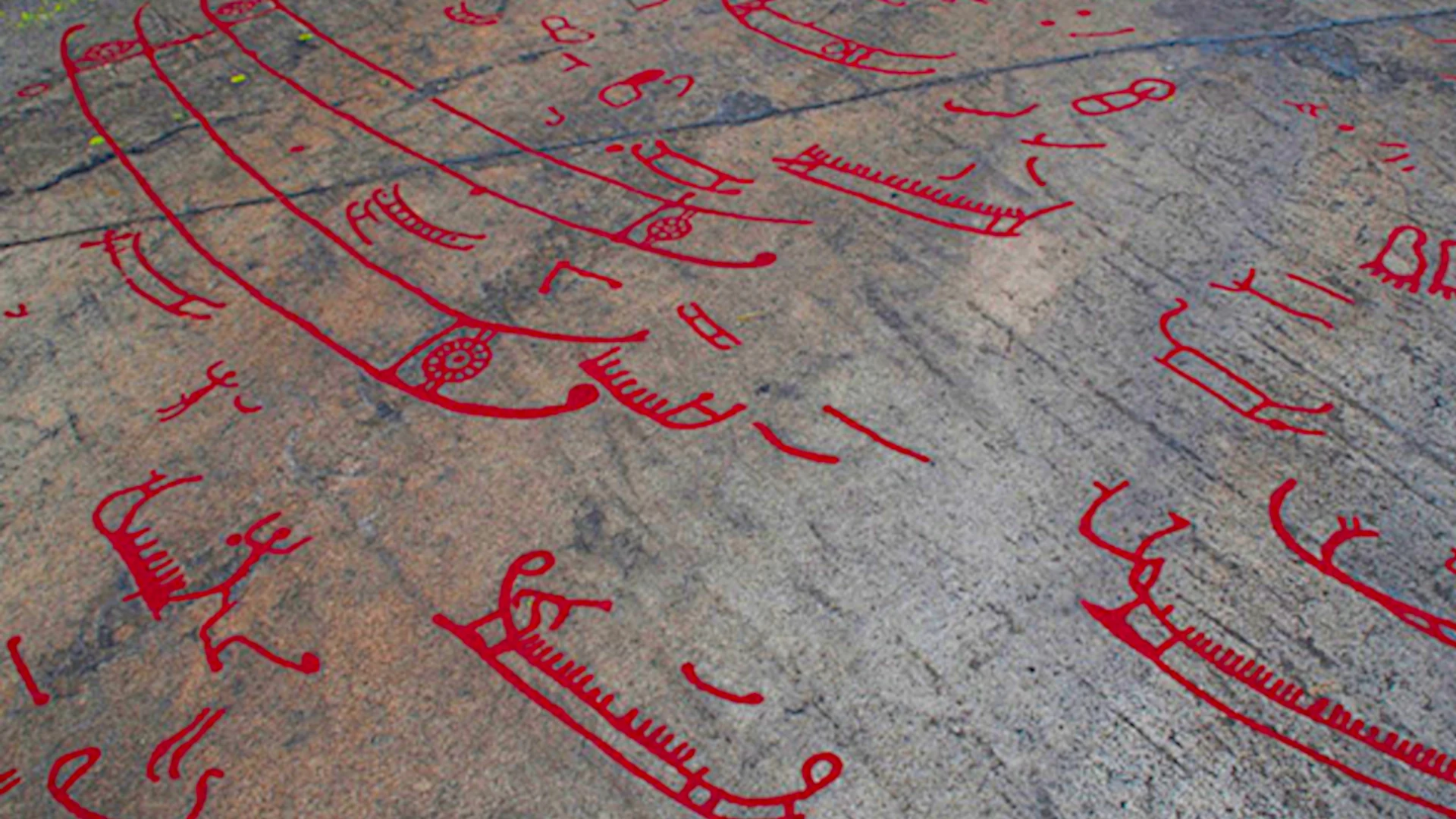
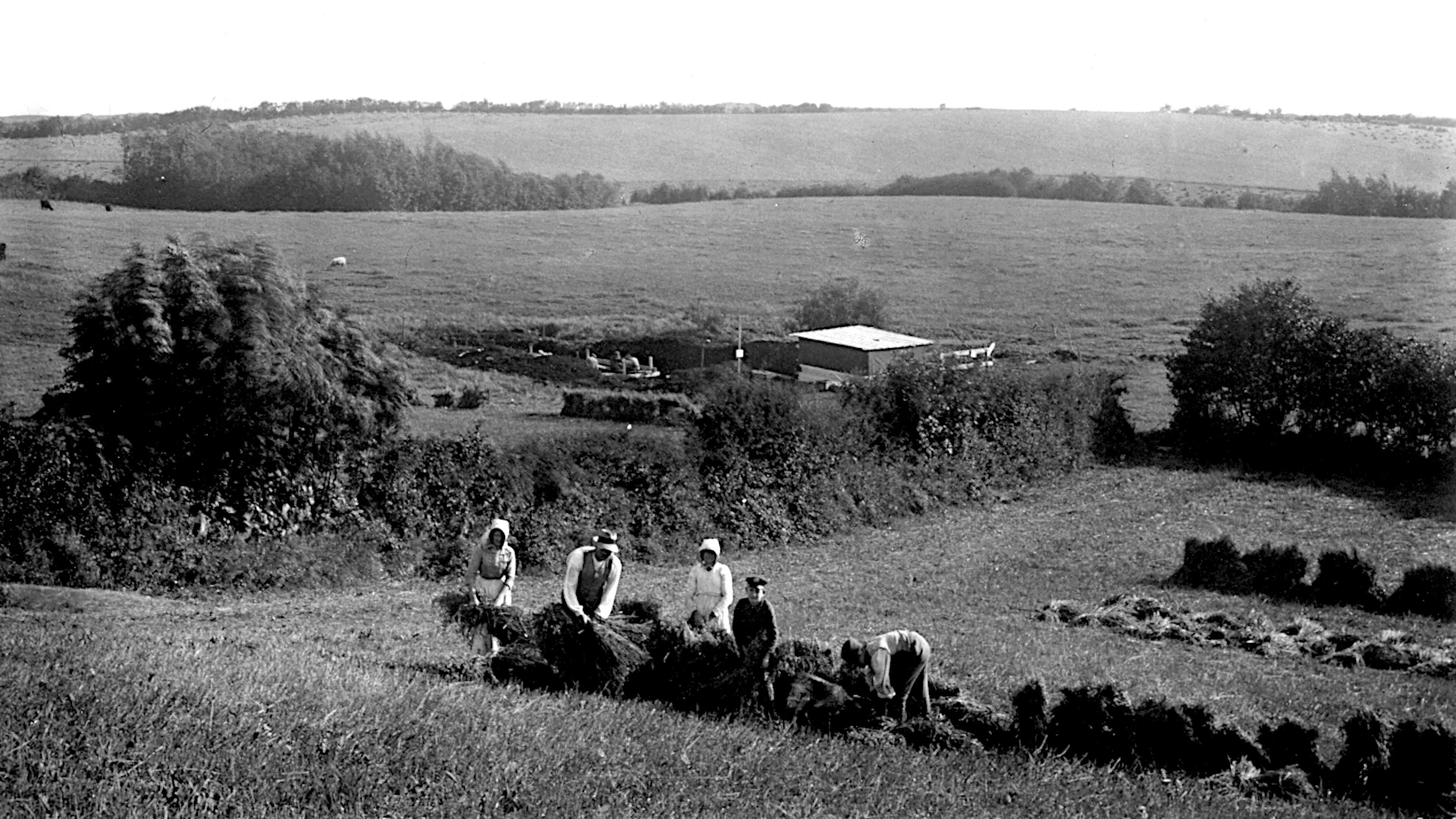
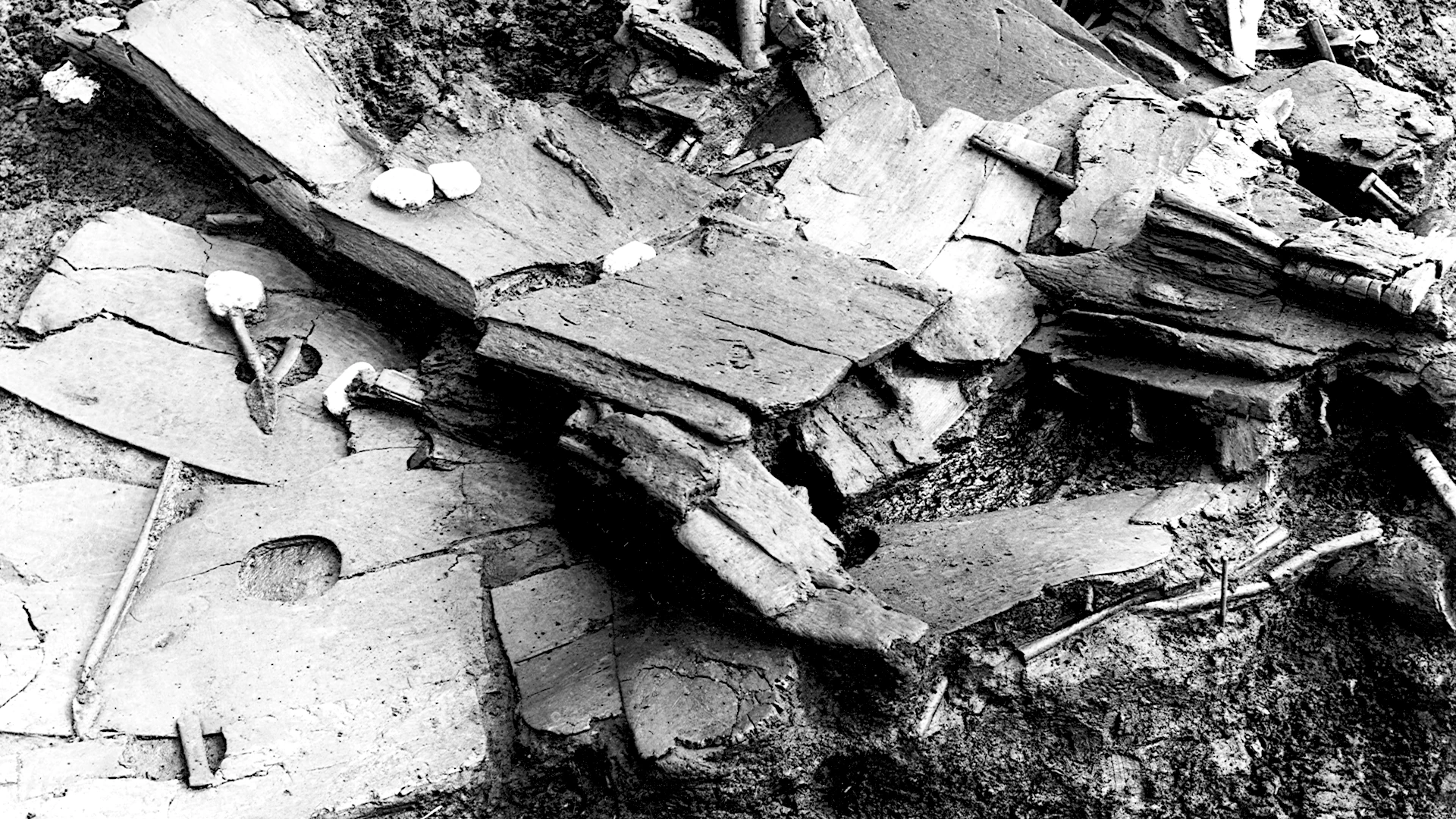
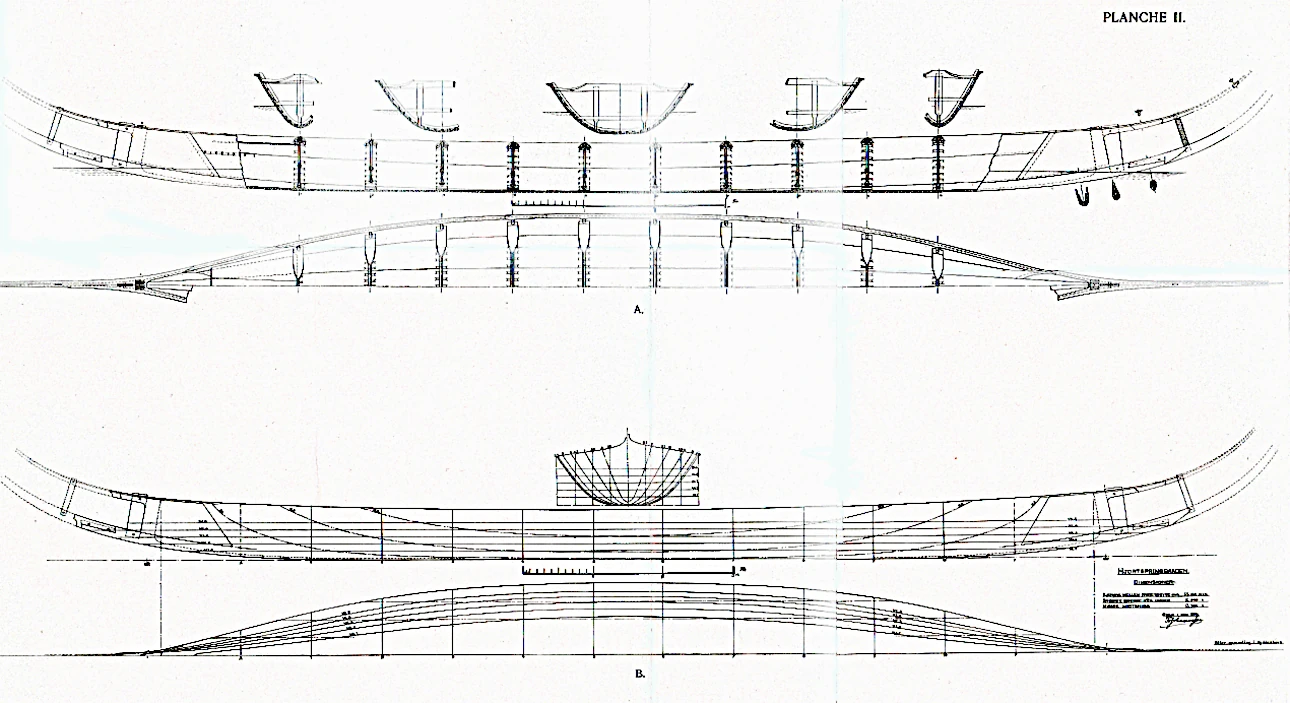
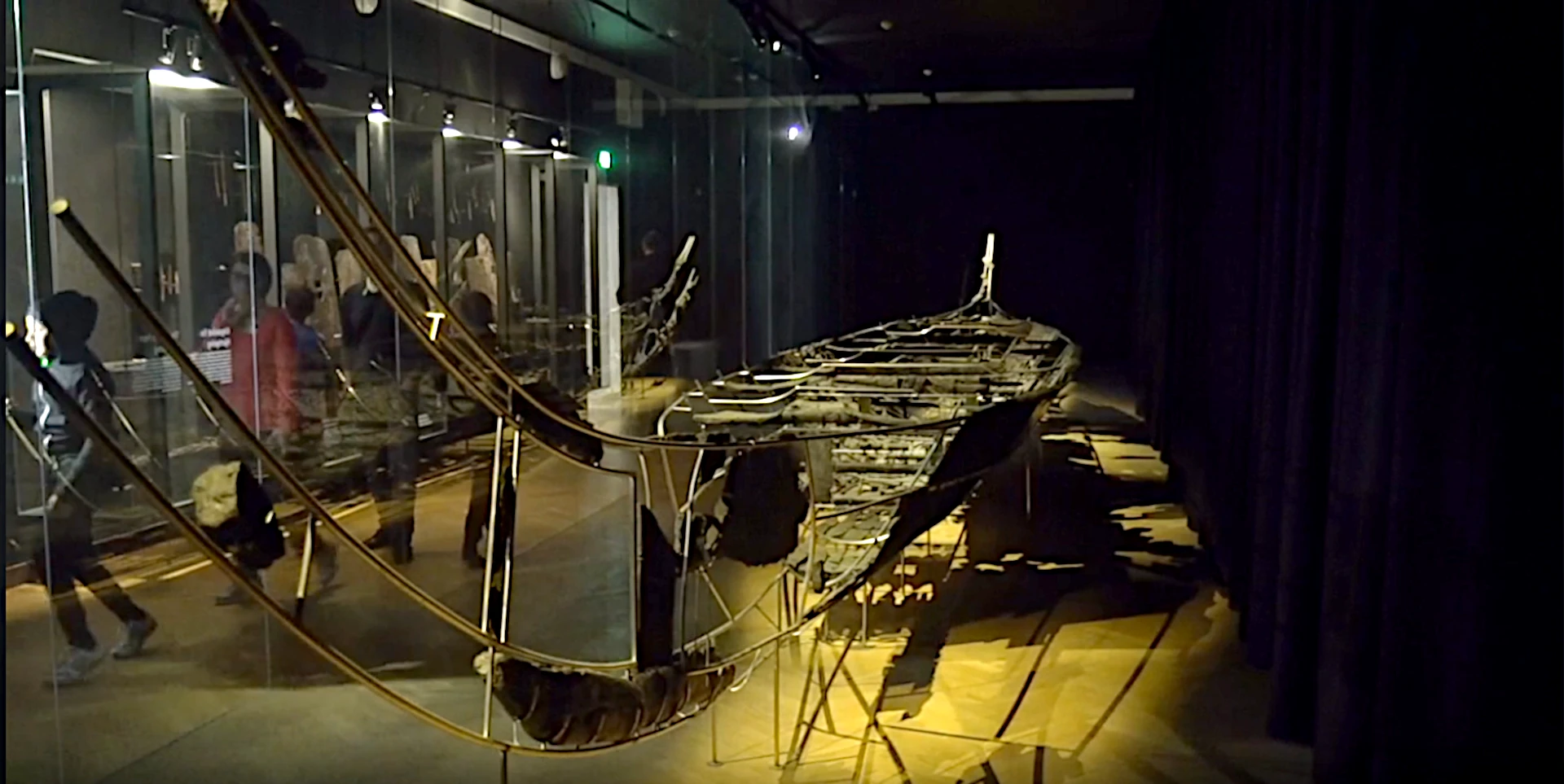 The drawings are the basis for the boat's skeleton of steel pipes. And for our reconstruction.' class=' lazyload blur-up' data-sizes='auto' />
The drawings are the basis for the boat's skeleton of steel pipes. And for our reconstruction.' class=' lazyload blur-up' data-sizes='auto' />